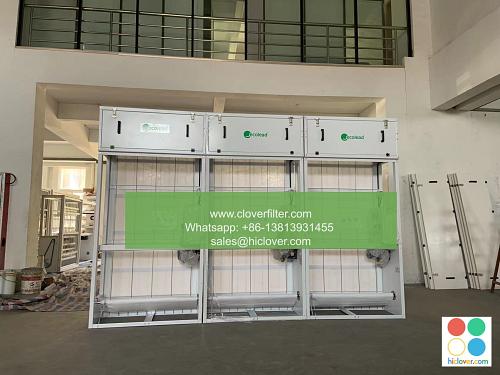Air Filter Tips for Reducing Energy Consumption

In today’s world, where energy efficiency and sustainability are becoming increasingly important, it’s essential to explore ways to reduce our carbon footprint and energy consumption. One often overlooked area is the humble air filter, which plays a crucial role in maintaining good indoor air quality while also impacting our energy bills. In this article, we’ll delve into some valuable air filter tips to help you reduce your energy consumption and create a more eco-friendly living or working space.
Understanding the Importance of Air Filters
Air filters are a critical component of any heating, ventilation, and air conditioning (HVAC) system, as they help remove pollutants, dust, and allergens from the air. However, dirty or clogged air filters can lead to increased energy consumption, reduced airflow, and even premature equipment failure. By choosing the right air filter and maintaining it properly, you can significantly reduce your energy costs and extend the lifespan of your HVAC system.
Key Air Filter Tips for Energy Efficiency
1. Choose the right MERV rating: The Minimum Efficiency Reporting Value (MERV) rating measures an air filter’s ability to capture particles of different sizes. A higher MERV rating generally means better air filtration, but it can also increase energy consumption. Look for a balance between air quality and energy efficiency.
2. Regularly maintain your air filters: Dirty air filters can increase energy consumption by up to 15%. Make sure to replace or clean your air filters every 1-3 months, depending on the type and usage.
3. Consider pleated air filters: Pleated air filters offer better air filtration and can help reduce energy consumption due to their increased surface area.
4. Upgrade to smart air filters: Smart air filters can monitor air quality and energy consumption in real-time, providing valuable insights to optimize your HVAC system.
5. Seal air leaks: Air leaks in your ductwork or building envelope can significantly reduce the effectiveness of your air filter. Seal any gaps or cracks to ensure energy efficiency and air quality.
Application Areas for Energy-Efficient Air Filters
1. Residential buildings: Homeowners can benefit from energy-efficient air filters by reducing their energy bills and creating a healthier living environment.
2. Commercial buildings: Businesses can improve indoor air quality and reduce energy consumption by implementing energy-efficient air filters in their HVAC systems.
3. Industrial settings: Industrial facilities can benefit from energy-efficient air filters by reducing energy costs and improving air quality in areas with high air pollution.
4. Transportation systems: Public transportation systems, such as buses and trains, can improve air quality and reduce energy consumption by using energy-efficient air filters.
Conclusion
In conclusion, air filters play a vital role in maintaining good indoor air quality while also impacting our energy consumption. By following these valuable air filter tips and considering various application areas, you can reduce your energy bills, create a more eco-friendly living or working space, and contribute to a more sustainable future. Remember to always prioritize energy efficiency and air quality when it comes to your air filter needs. It looks like you’re ready to start a conversation, but you haven’t given me a specific prompt to work with yet. What would you like to talk about? Would you like me to suggest some conversation starters?

